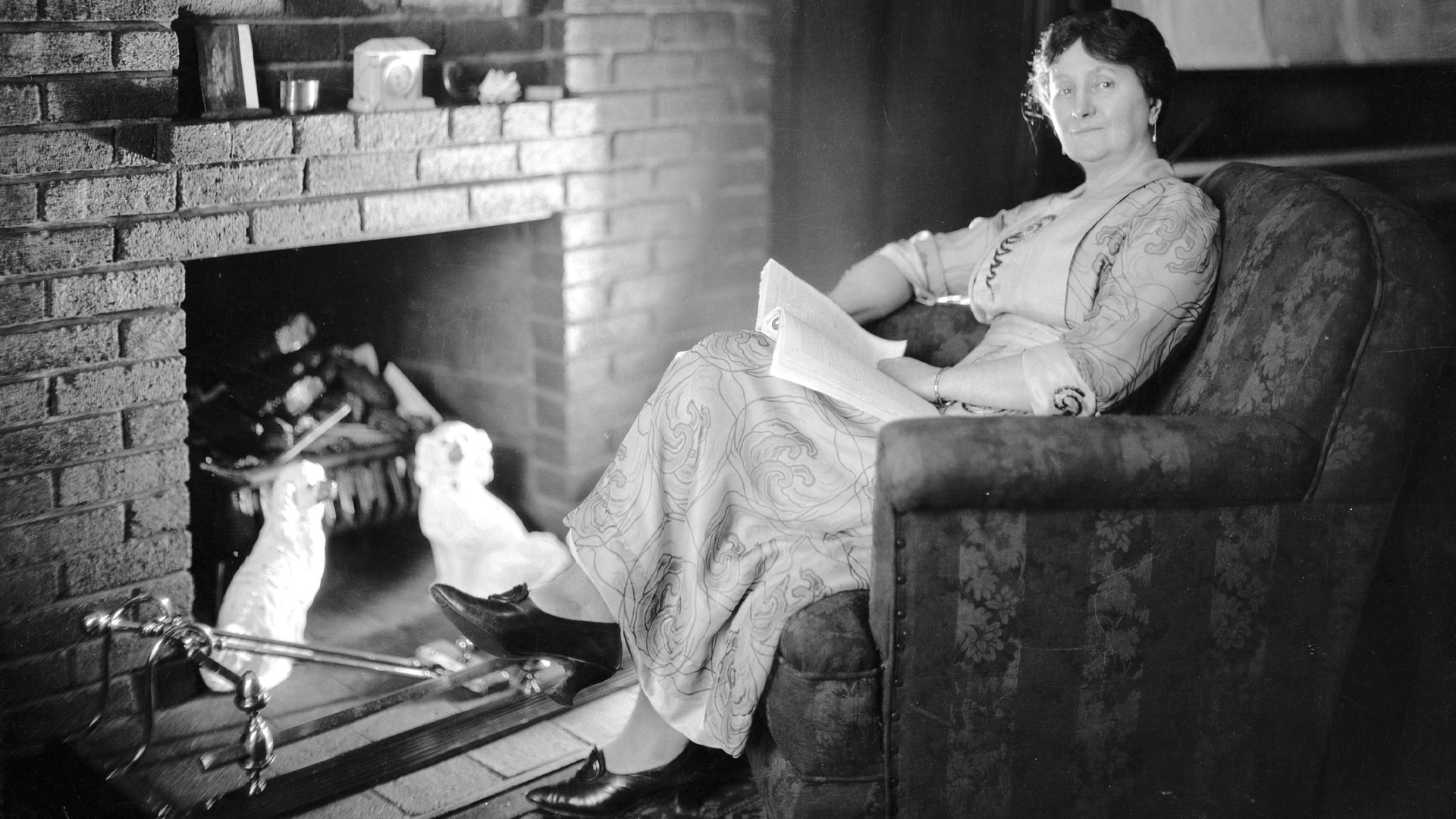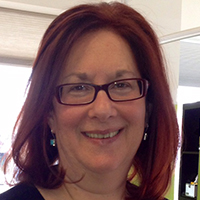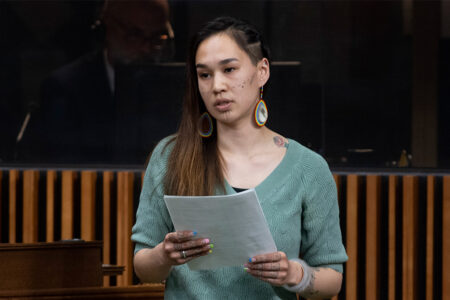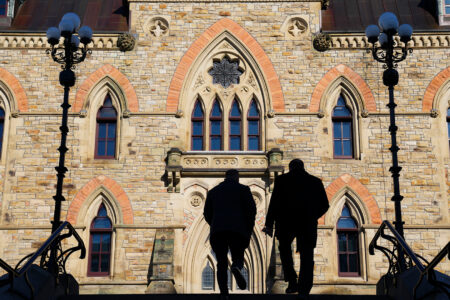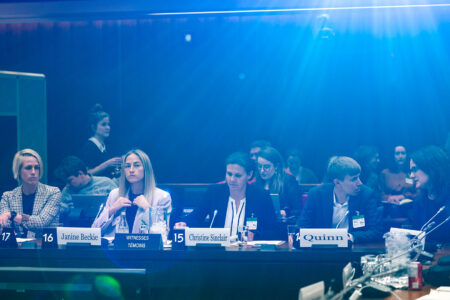
Canada has had more than 100 years to modernize elections and campaigns so that women candidates can compete on a level playing field.
What’s taken so long? How is it possible that obstacles dating from the suffrage era continue to pose significant barriers?
Veronica Strong-Boag’s forthcoming biography of the first woman cabinet minister in the British Empire reveals problems that continue to this day. In 1892, Mary Ellen Smith left the dusty coal towns of northern England for Nanaimo, B.C. She arrived as an experienced public reformer, committed to improving the living and working conditions of families like her own – composed of white European miners, their wives and children. Smith became a leader in West Coast campaigns to extend the vote to women and to strengthen minimum wage, public pension and child labour laws.
The sudden death of her husband Ralph, an MLA for Vancouver, led Smith to contest his seat in a provincial byelection. Despite fierce competition, she won in 1918 and in two subsequent races. Smith became not just B.C.’s first female MLA but also a minister without portfolio in the province’s then-Liberal government.
As an immigrant from the U.K. whose first language was English, what were her rewards? Smith was provided no stipend, staff or seat at the cabinet table. She resigned as minister without portfolio less than a year after her appointment, stating she refused to be a superfluous “fifth wheel on the political coach.” In 1928, the B.C. Liberals pushed Smith off the stage entirely, running her in a Tory bastion on Vancouver Island. Smith, as well as the B.C. Liberal Party, lost that election.
During much of Smith’s time in the public spotlight, political leaders and media pundits remarked on little beyond her attractive face, fashionable clothes, feminine speaking style and congenial personality. Smith became a sexualized commodity of the time: B.C. Liberal leader John Oliver announced that he’d kissed the victorious candidate out of “duty” rather than sin. Another B.C. Liberal proposed marriage with a $3,000 monetary incentive. In short, the substantive commitments that had long dominated Smith’s civic involvement were buried in a volley of commentary that highlighted her “comely” good looks and “quiet, gentle voice.”
Mary Ellen Smith stands among the first women in Canada to walk away from parliamentary politics with a deep sense of disappointment. But she was far from the last.
What can be done to ensure that today’s women candidates escape these sordid legacies? First, sustained focus in public debate on policy content rather than personal minutiae would go a long way toward improving our political climate. As they did 100 years ago, contemporary news reports and commentaries that highlight hair, wardrobe and tone of voice trivialize the contributions of half the population by turning political campaigns into old-fashioned beauty pageants. This trend is particularly worrisome in our visually saturated era, when social media emphasis on style and imagery is usurping the somewhat more-substantive orientation of older news outlets.
Second, I encourage candidates and leaders to channel Mary Ellen Smith by calling out the biases they confront. To their credit, a number of diverse women who abandoned federal politics in recent months, including Nunavut MP Mumilaaq Qaqqaq and Vancouver Granville MP Jody Wilson-Raybould, did just that. Back in mid-June, Qaqqaq announced she would not run in the next federal election. A member of the NDP caucus since 2019, Qaqqaq said the House of Commons was “a very uneasy place,” where staff did not recognize her status as an MP. Qaqqaq also felt stymied in her attempts to improve housing and prevent suicide in Indigenous and Inuit communities.
A Liberal MP and cabinet minister for one term and then an independent MP since 2019, Wilson-Raybould explained in July that she’d decided not to run again given a “toxic and ineffective Parliament” characterized by “harmful partisanship.”
Instead of quietly exiting the parliamentary arena, both Qaqqaq and Wilson-Raybould spoke publicly about what ails the system. They. along with embattled Green Party Leader Annamie Paul. have identified problems that continue to impede participants who come from traditionally marginalized outsider groups. Paul’s comments this summer suggest that the internal Green Party debate over the Middle East conflict and the defection to the Liberals of Jenica Atwin, a Green MP from New Brunswick, was far from civil. In fact, Paul told reporters that racist and sexist allegations were levelled against her at an emergency meeting of the Green Party’s national council in mid-June.
Not surprisingly, these contemporary trail-blazers include women who are Indigenous (Qaqqaq and Wilson-Raybould) as well as Black and Jewish (Paul). Their entry to Canadian public institutions that were constructed for and by white Christian men has provoked discomfort, hostility and lots in between.
Third, as the citizens whose voices ought to be represented in legislative chambers and in cabinet meetings, we – as members of a diverse Canadian public – need to demand better. It’s our responsibility to hold editors, journalists, bloggers and tweeters to foundational standards that require fair coverage of election campaigns. Emphases on the coiffure, sexual allure or voice of female candidates tend to go hand-in-hand with neglect of their substantive politics. This approach remains as vapid and imbalanced now as it was a century ago.
We also need to insist that parties and legislatures open their doors to change-oriented participants who don’t look like the Fathers of Confederation. If public institutions remain closed to candidates like Qaqqaq, Wilson-Raybould and Paul, those structures are sure to calcify as bloated parking lots full of status quo advocates.
Our job, in short, is to help ensure the experiences of women candidates and parliamentarians in 2021 are measurably better than they were in the era of Mary Ellen Smith.
Data shows that during this pandemic, public trust in elected leaders in Canada has dipped precipitously. Just imagine how much worse those trends will become if we don’t find ways to elect women like Mumilaaq Qaqqaq, Jody Wilson-Raybould and Annamie Paul – and ensure they are effective and are able to be influential inside the system.
This article is part of the How can we improve the elections process special feature.




